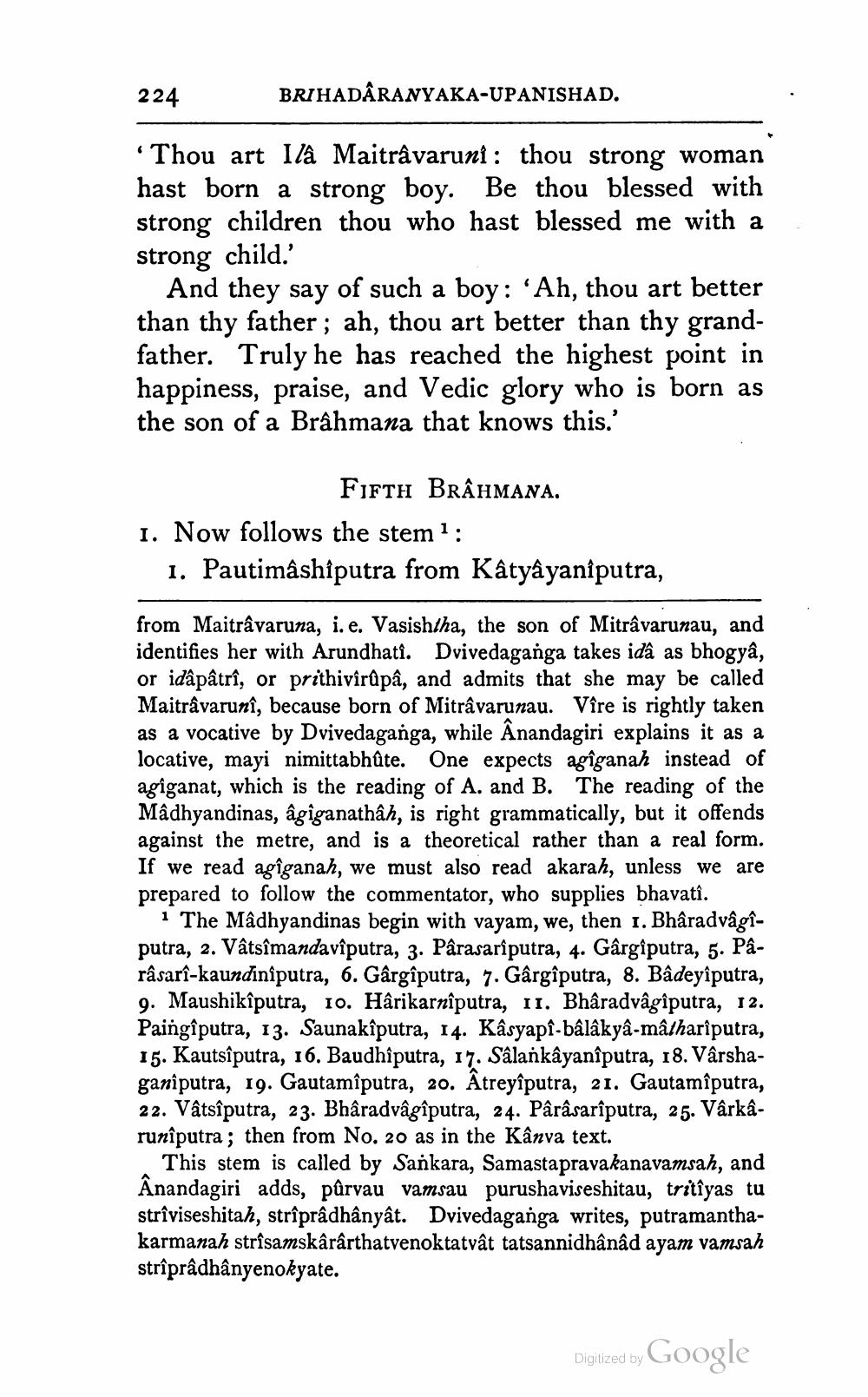________________
224
BRIHADARANYAKA-UPANISHAD.
• Thou art Ila Maitrâvaruni : thou strong woman hast born a strong boy. Be thou blessed with strong children thou who hast blessed me with a strong child.
And they say of such a boy: 'Ah, thou art better than thy father; ah, thou art better than thy grandfather. Truly he has reached the highest point in happiness, praise, and Vedic glory who is born as the son of a Brahmana that knows this.'
Fifth BRÂHMANA. 1. Now follows the stem ? :
1. Pautimâshỉputra from Kâtyâyaniputra,
from Maitrâvaruna, i.e. Vasishtha, the son of Miträvarunau, and identifies her with Arundhati. Dvivedaganga takes idâ as bhogyâ, or idâpâtrî, or prithivîrûpâ, and admits that she may be called Maitrâvarunî, because born of Mitrâvarunau. Vîre is rightly taken as a vocative by Dvivedaganga, while Ânandagiri explains it as a locative, mayi nimittabhûte. One expects agîganah instead of agaganat, which is the reading of A. and B. The reading of the Mâdhyandinas, âgiganathah, is right grammatically, but it offends against the metre, and is a theoretical rather than a real form. If we read agîganah, we must also read akarah, unless we are prepared to follow the commentator, who supplies bhavatî.
· The Mâdhyandinas begin with vayam, we, then 1. Bhâradvâgîputra, 2. Vâtsîmandavîputra, 3. Pârasarîputra, 4. Gârgiputra, 5. Pârâ sarî-kaundiniputra, 6. Gârgîputra, 7. Gârgîputra, 8. Bâdeyîputra, 9. Maushikîputra, 10. Hârikarnîputra, 11. Bhâradvâgîputra, 12. Paingîputra, 13. Saunakîputra, 14. Kâsyapî- bâlâkyâ-mâlhariputra, 15. Kautsîputra, 16. Baudhîputra, 17. Sâlankâyanîputra, 18. Vârshaganiputra, 19. Gautamîputra, 20. âtreyîputra, 21. Gautamîputra, 22. Vâtsîputra, 23. Bhâradvâgîputra, 24. Pârâsarîputra, 25. Vârkarunîputra; then from No. 20 as in the Kânva text.
This stem is called by Sankara, Samastapravakanavamsah, and Ânandagiri adds, pûrvau vamsau purushaviseshitau, tritîyas tu strîviseshitah, strîprâdhânyât. Dvivedaganga writes, putramanthakarmanah strîsamskârârthatvenoktatvật tatsannidhânâd ayam vamsah strîprâdhânyenokyate.
Digitized by Google




